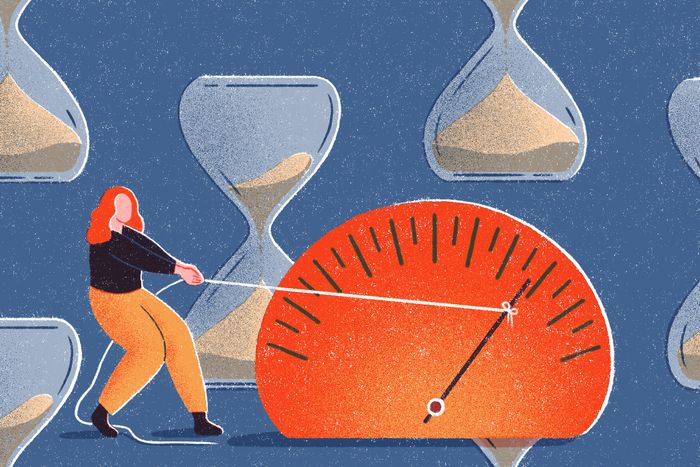
Maintaining a healthy weight is important for our overall well-being, but it’s equally crucial to adopt healthy and sustainable methods to achieve our weight loss goals. Unfortunately, many individuals resort to unhealthy weight loss methods in pursuit of quick results, often unaware of the potential dangers and long-term consequences. In this article, we will delve into why unhealthy weight loss methods should be avoided at all costs and highlight the negative impact they can have on both physical and mental health. By understanding the risks associated with these methods, we can make informed choices and prioritize our long-term health and well-being.
Table of Contents
The Allure of Quick Fixes
In today’s fast-paced world, we’re often tempted by promises of quick fixes and instant results, especially when it comes to weight loss. Unhealthy weight loss methods tend to exploit this desire for immediate gratification. Crash diets, extreme calorie restrictions, and detox programs promise rapid weight loss, but the truth is, they rarely deliver sustainable results. While these methods may offer short-term satisfaction, they can lead to serious health complications and weight regain in the long run. It’s important to understand that healthy weight loss is a gradual process that requires time, commitment, and a balanced approach.
The Downside of Unhealthy Weight Loss Methods

Unhealthy weight loss methods encompass a wide range of practices, including severe calorie restrictions, fad diets, diet pills, excessive exercise, and even purging. These methods often neglect the importance of balanced nutrition and can severely impact our physical and mental health. While they may lead to initial weight loss, the consequences can be dire. Nutrient deficiencies, muscle loss, weakened immune system, hormonal imbalances, eating disorders, and even organ damage are some of the risks associated with unhealthy weight loss methods. It’s crucial to be aware of these dangers and prioritize our well-being over short-term results.
The False Promises of Fad Diets
Fad diets come in various forms, promising significant weight loss by eliminating entire food groups or emphasizing certain macronutrients. These diets often gain popularity due to celebrity endorsements or catchy marketing strategies, but they rarely provide sustainable solutions. Fad diets tend to be restrictive and unbalanced, leading to nutrient deficiencies and metabolic imbalances. Moreover, they can create an unhealthy relationship with food and result in a cycle of weight loss and regain. Instead of falling for these temporary trends, it’s advisable to adopt a balanced and varied diet that supports long-term health and sustainable weight management.
The Risks of Rapid Weight Loss

Unhealthy weight loss methods often promise rapid results, but the price paid for quick weight loss can be steep. Rapid weight loss typically involves severe calorie restrictions, which can lead to muscle loss, nutrient deficiencies, and a weakened immune system. Additionally, losing weight too quickly may disrupt our metabolism and hormonal balance, making it harder to maintain a healthy weight in the long term. Furthermore, crash diets and extreme measures can have detrimental effects on our mental health, causing mood swings, anxiety, and an unhealthy preoccupation with weight and appearance. Slow and steady progress is not only safer but also more sustainable.
The Importance of Balanced Nutrition
When it comes to healthy weight loss, balanced nutrition plays a vital role. Unhealthy weight loss methods often prioritize rapid weight loss over proper nourishment, leading to deficiencies in essential vitamins, minerals, and macronutrients. Such imbalances can have serious consequences for our health, affecting our energy levels, immune system, and overall well-being. Instead of focusing solely on calorie counting, it’s crucial to consume a variety of whole foods, including fruits, vegetables, lean proteins, whole grains, and healthy fats. A well-rounded diet ensures that we obtain the necessary nutrients while supporting sustainable weight loss and overall health.
The Role of Exercise in Healthy Weight Loss
While regular exercise is an essential component of a healthy lifestyle, it should be approached with caution when combined with unhealthy weight loss methods. Excessive exercise without proper rest and recovery can lead to overuse injuries, muscle breakdown, and hormonal imbalances. It’s important to adopt a balanced exercise routine that includes cardiovascular activities, strength training, and flexibility exercises. Exercise should be enjoyable and supportive of our overall well-being, rather than a means to punish ourselves for food choices or an obsession with weight loss. Remember, moderation is key when it comes to physical activity.
The Psychological Impact of Unhealthy Weight Loss Methods
Unhealthy weight loss methods not only pose risks to our physical health but also take a toll on our mental well-being. The intense focus on weight and appearance can lead to negative body image, low self-esteem, and the development of eating disorders. The constant cycle of restriction, guilt, and bingeing can create an unhealthy relationship with food and contribute to disordered eating patterns. Prioritizing mental health alongside physical health is crucial for sustainable weight loss. Adopting positive self-talk, seeking support from professionals, and practicing self-care is essential in promoting a healthy mindset and a positive body image.
Sustainable Weight Loss for Long-Term Health

Instead of resorting to unhealthy weight loss methods, it’s essential to adopt a sustainable approach that promotes long-term health. Sustainable weight loss focuses on gradual progress, balanced nutrition, regular exercise, and a positive mindset. It involves making healthy lifestyle changes that can be maintained in the long run. Consulting a registered dietitian or a healthcare professional can provide personalized guidance and support throughout the weight loss journey. Remember, the ultimate goal is not just shedding pounds but achieving overall well-being and a healthier lifestyle.
Conclusion
While the desire to achieve weight loss goals quickly may be tempting, it’s crucial to steer clear of unhealthy weight loss methods. The risks associated with crash diets, extreme restrictions, and other unsustainable practices far outweigh the short-term benefits. By adopting healthy and sustainable strategies, such as balanced nutrition, regular exercise, and a positive mindset, we can achieve our weight loss goals while safeguarding our long-term health and well-being. Remember, true success lies not in rapid weight loss, but in adopting healthy habits that support our physical and mental health. Let’s prioritize our well-being and embrace a sustainable approach to weight loss for a healthier and happier future.
Learn about: Leverage AI-powered virtual assistants to discover the fastest natural weight loss methods that actually work.






